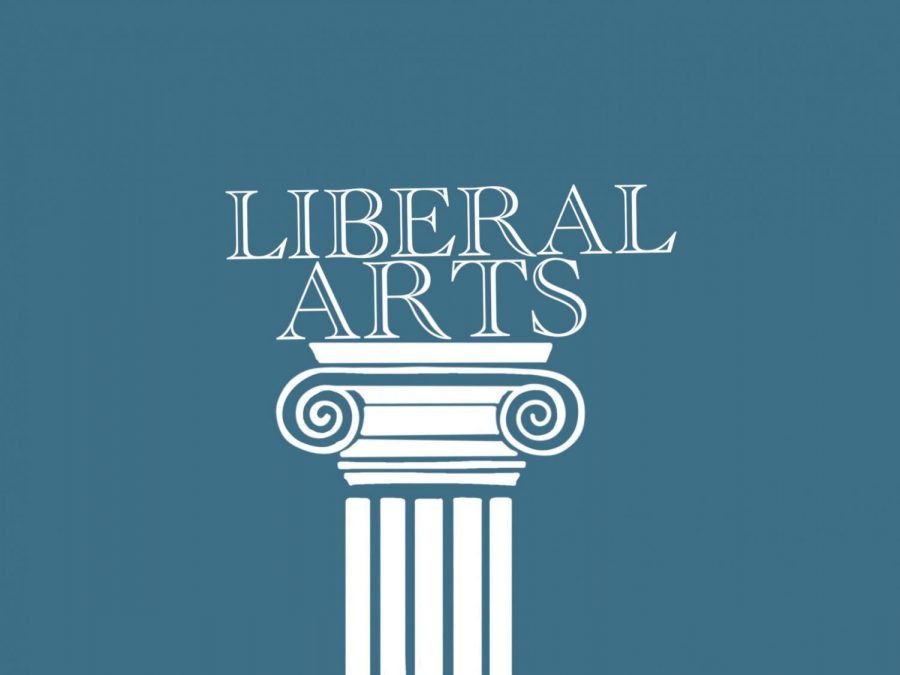Opinion | Yes, I’m an English major. No, I’m not stupid.
February 19, 2020
As an English major, I am aware that there are certain stereotypes I fit into. I love “Harry Potter,” “The Catcher in the Rye” changed my life, I enjoy spending my free time in libraries, I used to work at Barnes & Noble and now I work at a Starbucks. I might be the perfect example of a “Coffee Shop English Major.”
Recently, I was behind the espresso bar at my Starbucks, working with a friend of mine who is also an English major. As we were making coffee, we discussed authors we mutually dislike.
We laughed when we learned that neither of us are fans of Vladimir Nabokov. It was a lighthearted conversation among two literature lovers. Most English majors I know love Nabokov, so I joked with my friend, saying, “Wow, we’re disgraceful English majors.” At this point, a middle-aged customer decided to approach me.
“I couldn’t help but overhear,” she said. “But you’re talking about being a ‘disgraceful English major.’ I just have to say, what did you expect? You got an English degree and now you’re working in a coffee shop. Did you really think you were going to come out of college with a real job?”
I froze. It seems this customer only heard my last comment in our conversation and jumped to an immediate conclusion that I was a recent college graduate with an English degree, angry about not having a “real” job — whatever a “real” job is.
I kept my composure and told her that we were not even talking about jobs and that I had not yet graduated with my English degree. I also told her that though I had received a job offer, I had made the decision to attend graduate school next year.
Of course, I was pretty angry after this interaction. However, I am no stranger to being judged for being a liberal arts major, as many have deemed liberal arts majors the “dumb majors.”
I am a double major in English nonfiction writing and communication, and I come from a family of scientists. Naturally, family gatherings are not fun for me. I get asked all of the “English major” questions, such as “are you getting a teaching certificate?” and “why didn’t you major in marketing? You could still use your writing skills.”
In my head, the answers to those questions are simple. No, I am not getting a teaching certificate. I want to be a writer, not a teacher. Yes, I actively made the decision to major in English over marketing because I value using my creative skills over getting a job in the business world. It does not seem very complex to me, but to many others, it’s rocket science.
Their questions are valid, however, as CBS News reports 29% of English majors will be underemployed after graduation, compared to 18% for engineering and computer science. The English major will not lead to an immediate job in lucrative fields like tech or health care like a major in engineering or computer science will.
Despite this, I firmly believe that the skills of writers will always be needed. For example, I am currently a writing and communications intern at the Carnegie Mellon University College of Engineering. I write stories about the work scientists are doing so they can share their accomplishments with colleagues all over the world. This is the perfect example of the STEM field needing help from the liberal arts field, and vice versa.
Yes, 29% underemployment is significant, but what about the other 71%? Should I give up on pursuing what I love because the statistics are less than ideal? No, I’m going to keep working until I become one of the 71%.
I am not lazy, and I am not stupid. I’m working just as hard as other college students. For me, working hard just means writing all night and working at one of my jobs all day as opposed to memorizing algorithms or studying for organic chemistry exams.
As an English major, I don’t sit around thinking, “Wow, I hope all these books I’m reading for my degree will get me a high-paying job one day,” and I don’t know any other English majors that actually do think that way. We aren’t delusional. We know our field of study does not lead to a direct job like an electrical engineering or nursing major will. For my fellow English majors and I, it’s all about making your skills work for you and creating your own path.
I created my own path by adding a second major, getting my writing published by four different news outlets and working internships since the first semester of my junior year. I haven’t stopped working at becoming a better, more successful writer since I decided this was what I wanted to do with my life.
If you want to “make it” in any liberal arts field — whether it be journalism, theater, creative writing, music, politics or film — you have to really want it and be willing to work for it. I have worked for it, and it has paid off in a graduate school acceptance that I’m incredibly proud of. I plan to keep perfecting my writing until I never have to work at a Starbucks again. It might take a while, but it is a welcome challenge.



